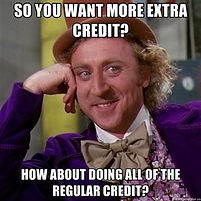Zach Vaughn's Classroom Management Plan
Class Policies
.Cell Phones/Electronic Devices: Cell phone policies are crucial in a high school classroom community and vary widely based on school district and teacher views of electronic devices. Personally, I believe that electronic devices can be an essential tool for student learning. According to a study done in a large, urban school district in Kentucky (628 high school students), 90.7% of students were using a variety of mobile phone features for school-related work, 73.8% supported integrating mobile phones into the classroom instruction, and 70.6% believed that mobile phones supported learning (Thomas & Muñoz, 2016, p. 19). In my classroom, I would allow students to use their electronics during their work time for individual and group tasks as a research tool or for music (as long as neither I or their neighbors can hear it). During lectures or non-work time, students are expected to have their phones out of sight (i.e. in pockets or in electronics pouch in the front of the room) and either silenced or off.

Bathroom/Hall Passes: All high schools have the same sort of system regarding student use of restrooms: students get out their planner, fill out a pass, and have the teacher sign it; or ask the teacher for a hall pass. I have seen some teachers follow this, and I have seen some just let their students go. Personally, I believe that students should just be allowed to go to the restroom. However, I recognize that they could take advantage of this so I would have them sign out a hall pass using a sign out sheet, complete with their name, the date, time of use, and destination (see attached document).
Grading Policy: I would make participation the greatest proportion of a student's grade because I want to prioritize student involvement in their classroom learning over the traditional model of teaching to one's tests. That being said, a teacher still has to give assessments and I did not want to fully devalue testing, so I would make it worth slightly more than homework because the evaluation of student progress is an important part of teaching and tests, quizzes, essays, projects, and homework all serve as forms of assessment (they can be formal, informal, summative, or formative). You can find a more detailed version of my grading policy in the attachment provided.

Extra Credit: Extra credit should really only be offered for special occasions (like holidays or cultural events), but I am also willing to offer some help in the form of a homework pass-type thing. Why? Because I know how overwhelmed students can get. I remember a Math professor I had at Fisher who gave everyone three different extensions: a "24 hour technical difficulty extension", a "three-day extension", and another one that I cannot remember. He said that we only got one of each and that, if we did not use them, he would add a certain number of points to our final grade at the end of the semester. I also included potential extra credit opportunities for events like Hispanic Heritage Month and Black History Month because these are cultural events that students can experience to enrich themselves*. Also, the teacher I observed at East Rochester High School does something like this as well as one of my Spanish professors. For a detailed version of my extra credit policy, see the "My Grading System" Document.
*Analyze how characteristics (cultural, economic, and physical-environmental) of regions affect the history of communities, civilizations, and nations. (Common Core Vertical Articulation and Progression of Social Studies Practices, Grades 9-12: Geographic Reasoning)